In recent years, there has been a growing concern over the use of plastic bags and its impact on the environment. Many countries around the world have implemented bans or levies on the use of single-use plastic bags, and the United Kingdom is no exception. However, despite these measures, plastic bags are still being used in the UK, albeit to a lesser extent.
The issue of plastic bag usage in the UK gained significant attention in 2015 when a 5p charge was introduced for single-use carrier bags in large shops and supermarkets in England. This move aimed to reduce the number of plastic bags being used and subsequently discarded. It had a remarkable effect, with the number of single-use plastic bags distributed by major supermarkets falling by 86% in the first year alone.
Since the introduction of the 5p charge, there has been a notable shift in consumer behavior. Shoppers in the UK have become more mindful of their plastic bag usage and are more likely to bring their own reusable bags when going shopping. Additionally, many supermarkets have made concerted efforts to encourage the use of reusable bags by selling them at affordable prices and offering incentives such as loyalty points.
Despite the positive progress, plastic bags are still in use in the UK. Small retailers, businesses with fewer than 250 employees, and shops that primarily sell takeaway food or prescription medicines are exempt from the 5p charge. This exemption has allowed some plastic bags to continue being used. However, the overall impact of the 5p charge and the cultural shift towards reusable bags has been significant in reducing the reliance on plastic bags in the UK.
- The History of Plastic Bag Usage in the UK
- The Environmental Impact of Plastic Bags
- 1. Carbon Footprint
- 2. Waste and Litter
- Plastic Bag Bans and Charges in the UK
- The Alternatives to Plastic Bags
- The Effectiveness of Plastic Bag Reduction Measures
- Question-answer:
- Are plastic bags still being used in the UK?
- Is it true that plastic bags are no longer free in the UK?
- When did the plastic bag charge come into effect in the UK?
- Have the plastic bag charges been effective in reducing usage?
- What are the alternatives to plastic bags in the UK?
The History of Plastic Bag Usage in the UK
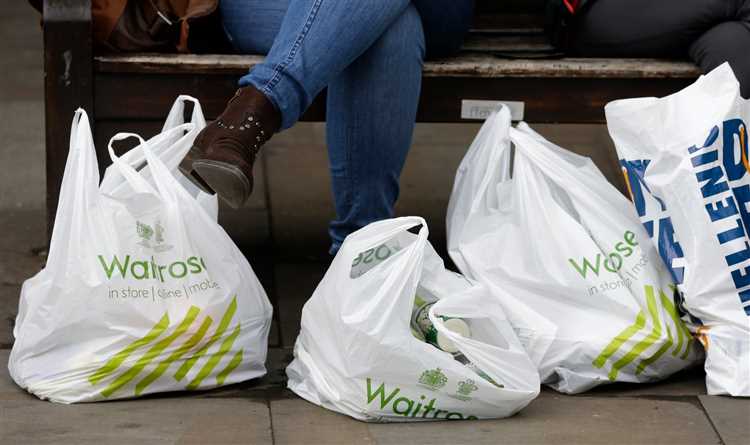
Plastic bags have been widely used in the United Kingdom for several decades. Their popularity grew in the 1970s as a convenient and cost-effective alternative to paper bags. Plastic bags provided a waterproof and durable solution for carrying groceries and other goods.
However, as public awareness around environmental issues increased in the late 20th century, concerns about the impact of plastic bags on the environment began to emerge. It became evident that plastic bags were causing significant pollution, especially in marine ecosystems.
In response to these concerns, the UK government and retailers started taking measures to reduce plastic bag usage. In 2002, a voluntary agreement was introduced which encouraged retailers to reduce the number of single-use carrier bags they provided. This led to a slight decrease in plastic bag usage.
Further efforts were made in 2015 when a 5 pence charge was introduced for single-use plastic bags in large shops and supermarkets in England. This initiative proved to be highly effective in reducing plastic bag consumption. In the first six months after the charge was implemented, there was a dramatic drop of approximately 85% in single-use plastic bag usage.
In recent years, the UK government and retailers have continued to promote the use of reusable bags and encourage customers to bring their own bags when shopping. Many retailers have also started offering durable and reusable bags as alternatives to single-use plastic bags.
While plastic bags are still in use in the UK, their usage has significantly decreased due to various regulations and consumer awareness campaigns. These efforts have helped reduce the environmental impact of single-use plastic bags and promote more sustainable alternatives.
The Environmental Impact of Plastic Bags
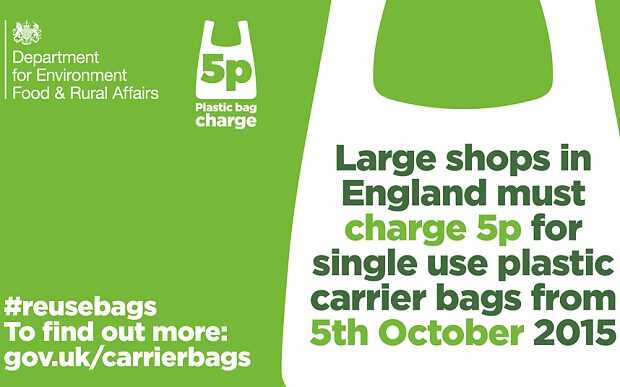
Plastic bags have a significant environmental impact, primarily due to their contribution to the problem of plastic pollution.
Plastic bags are non-biodegradable, meaning they do not naturally break down into organic compounds. Instead, they can persist in the environment for hundreds of years. This longevity poses a threat to wildlife, as animals can become entangled in discarded bags or mistake them for food. Additionally, when plastic bags degrade into smaller pieces, known as microplastics, they can enter the food chain and contaminate ecosystems.
1. Carbon Footprint
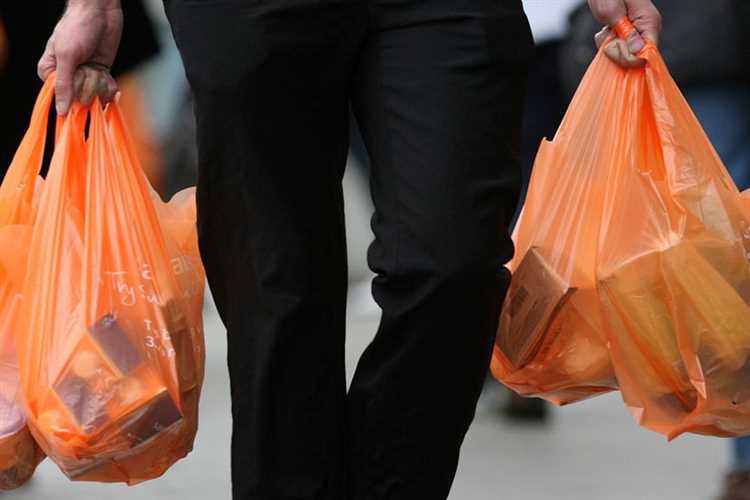
Plastic bag production contributes to greenhouse gas emissions, primarily through the extraction and processing of crude oil or natural gas, which are used to make plastic. These emissions have a negative impact on climate change and global warming.
2. Waste and Litter
Plastic bags are a major source of litter, contributing to the visual pollution of the environment. Even when disposed of properly, they can be blown away by the wind and end up in natural habitats such as oceans, rivers, and parks. The accumulation of plastic bags in these areas not only affects the aesthetics but also harms marine life and other ecosystems.
Efforts to reduce plastic bag usage and promote alternatives, such as reusable bags, have been implemented to mitigate the environmental impact. Many countries have introduced legislation to ban or impose taxes on plastic bags to encourage consumers to make more sustainable choices.
It is crucial for individuals to be conscious of their plastic bag usage and opt for more eco-friendly options whenever possible. By doing so, we can help protect the environment and work towards a more sustainable future.
Plastic Bag Bans and Charges in the UK
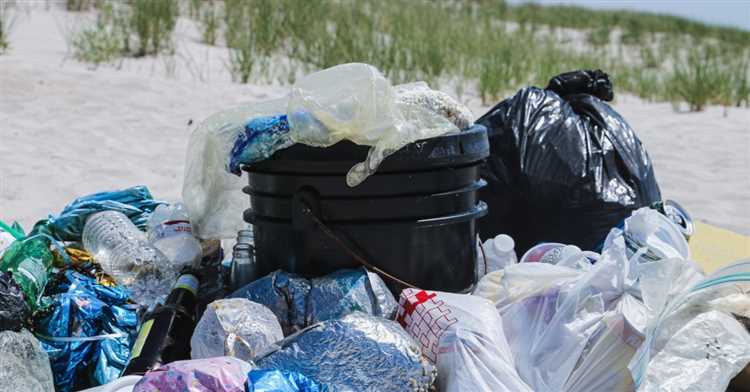
The use of plastic bags has been significantly reduced in the UK thanks to the implementation of bag charges and bans. In 2015, a 5p charge was introduced for single-use plastic bags in larger retailers in England. This initiative was successful in reducing the number of plastic bags distributed by over 85% in the first year alone.
Following the success of the charge in England, similar initiatives were introduced in Scotland, Wales, and Northern Ireland. Scotland implemented a charge in 2014, while Wales and Northern Ireland implemented charges in 2011 and 2013 respectively. These charges have also proven effective in reducing plastic bag usage in their respective regions.
In addition to charges, some areas in the UK have also implemented bans on certain types of plastic bags. For example, in 2018, the Scottish Government announced a ban on the sale and manufacture of plastic-stemmed cotton buds, which are commonly found in plastic bags. This ban aims to further reduce plastic pollution and protect marine life.
Overall, the introduction of bag charges and bans in the UK has been successful in reducing the use of plastic bags and promoting a more sustainable approach to shopping. However, it is important to note that some exemptions apply, such as bags used for certain items like raw meat or prescription medicines.
The Alternatives to Plastic Bags
With the increasing awareness of the negative environmental impact caused by plastic bags, various alternatives have emerged as more sustainable options. These alternatives aim to reduce waste and promote the use of reusable and eco-friendly materials. Here are some popular alternatives to plastic bags:
| Alternative | Description |
|---|---|
| Cotton Bags | Cotton bags are one of the most widely used alternatives to plastic bags. They are durable, lightweight, and can be easily folded and stored. Cotton is a natural and biodegradable material, making it a more sustainable option. |
| Jute Bags | Jute bags, also known as burlap bags, are made from the fibers of the jute plant. They are strong, reusable, and compostable. Jute bags have become increasingly popular due to their eco-friendly nature. |
| Paper Bags | Although paper bags are still made from trees, they are considered a better alternative to plastic bags as they are biodegradable and recyclable. Many retailers offer paper bags as an option for customers. |
| Reusable Tote Bags | Reusable tote bags come in various materials, such as canvas, nylon, or polyester. They are versatile, strong, and can carry heavy loads. Tote bags are a popular choice for grocery shopping and can be used multiple times. |
| Bioplastics Bags | Bioplastics bags are made from plant-based materials, such as cornstarch or sugarcane. They are considered more eco-friendly than traditional plastic bags as they are biodegradable and have a smaller carbon footprint. |
These alternatives provide consumers with a range of options to reduce their reliance on plastic bags. By choosing to use these alternatives, individuals can contribute to the global effort of reducing plastic waste and protecting the environment.
The Effectiveness of Plastic Bag Reduction Measures
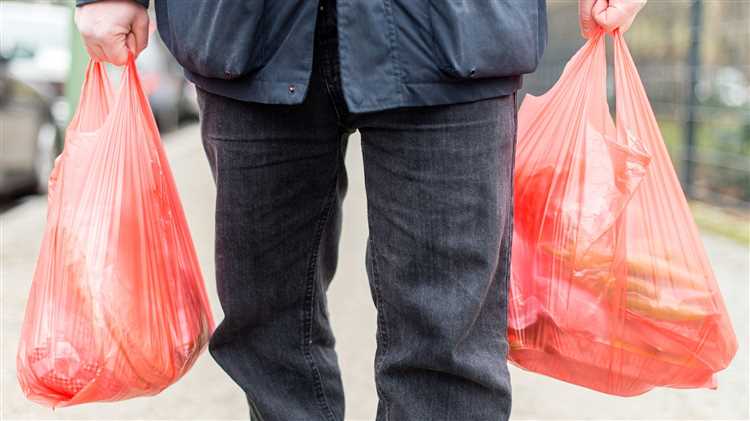
The issue of plastic bag usage in the UK has prompted various measures to reduce their environmental impact. These efforts have been effective in significantly decreasing the number of plastic bags used across the country.
One of the most successful initiatives has been the introduction of the plastic bag charge in 2015. This policy requires retailers to charge customers for every plastic bag they use, encouraging people to bring their own reusable bags. Since its implementation, there has been a drastic decrease in the number of plastic bags distributed by retailers.
Furthermore, many retailers have voluntarily adopted measures to reduce plastic bag usage. For instance, some supermarkets offer discounts or incentives to customers who bring their own bags. This encourages shoppers to choose reusable options and helps to create a culture of sustainability.
The effectiveness of these reduction measures is evident in the statistics. In the year before the plastic bag charge was introduced, around 7.6 billion single-use plastic bags were distributed in the UK. In the following year, this number reduced by around 83%, to approximately 1.3 billion bags.
Moreover, the reduction in plastic bag usage has led to significant environmental benefits. Plastic bags are a major source of pollution, particularly in oceans and waterways, where they harm marine life. By reducing the number of plastic bags, these measures have helped to mitigate this environmental damage and preserve natural ecosystems.
While the UK has made significant progress in reducing plastic bag usage, there is still more work to be done. Continued efforts to encourage consumers to use reusable bags and reduce plastic waste are crucial for long-term sustainability and protecting the environment.
In conclusion, the measures implemented in the UK to reduce plastic bag usage have been highly effective in curbing their environmental impact. The introduction of the plastic bag charge and voluntary efforts by retailers have led to a significant decrease in plastic bag distribution. These reduction measures have not only reduced pollution but also promoted a culture of sustainability. However, further action is needed to continue this progress and ensure a more sustainable future.
Question-answer:
Are plastic bags still being used in the UK?
Yes, plastic bags are still being used in the UK, but their usage has significantly decreased after the introduction of a plastic bag charge in 2015.
Is it true that plastic bags are no longer free in the UK?
Yes, that is true. In 2015, the UK government introduced a 5 pence charge for single-use plastic bags in large shops and supermarkets.
When did the plastic bag charge come into effect in the UK?
The introduction of the plastic bag charge in the UK took place on October 5th, 2015.
Have the plastic bag charges been effective in reducing usage?
Yes, the plastic bag charges have been effective in reducing usage. The number of single-use plastic bags distributed by retailers has declined significantly since the implementation of the charge.
What are the alternatives to plastic bags in the UK?
There are several alternatives to plastic bags in the UK, including reusable shopping bags made from materials such as cotton, canvas, or jute. Some retailers also offer biodegradable or compostable bags as an eco-friendly option.